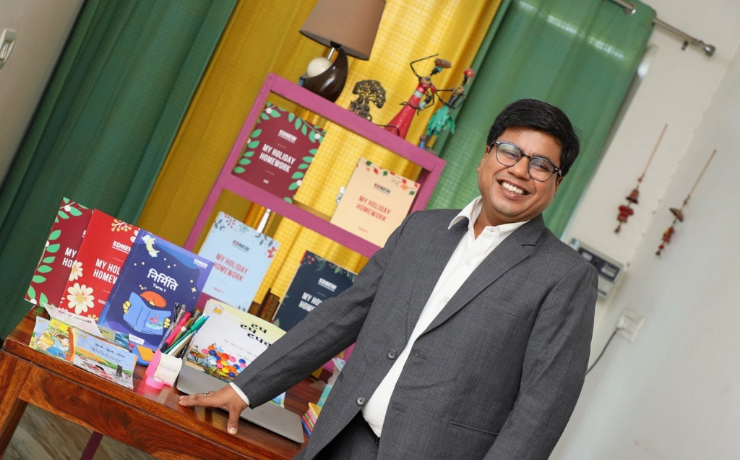The greatest irony of our world is that basic human rights are not guaranteed to everyone. We’ve come a long way from the days when women were considered secondary sex and yet, discrimination continues to exist in numerous parts of the society today. The sex workers’ section is one such painful and divided group.
“We are not going to apologize for prostitution, but we are going to struggle for the dignity of the profession.” – Sandra Corella

Sex workers, have always been neglected, frowned upon, and not treated with dignity in India. But, it is not an illegal profession as of May 19th 2022, when the Supreme Court of India (SCI) directed recognition of prostitution as a legal profession and emphasized that sex workers, like any other professionals, are entitled to dignity, human rights and constitutional rights. But, does the act solve the problem?
The problem and its deep-seated roots
The perception of sex work as a profession in India is the main reason behind the issues faced by sex workers in the country. The masses and the government look down upon sex workers as subjects unworthy of benefits or legal protection, turning them into outcasts. This forces them to lead a life of isolation thereby further pushing their profession into ambiguity.

Deepthi Devi, an individual sex worker from Kolkata commented, “We continuously face a stream of abusive behaviour from the police, themselves. They have on occasions, arrested me and my sisters. The police are supposed to protect us all and yet, we face such trauma because of them. The possibilities of rape, violence, and trauma on sex workers have been neglected by them for ages. Whom do we go to, for help? In the rare case when sex workers like me can lodge their complaints, police approach these complaints as normal occupational outcomes. There’s no way out.”
Thankfully, there is a ray of hope as the Supreme Court’s bill has now extended the workplace harassment law to sex workers which would be the same as other professions, recognizing any form of distress- physical, emotional, psychological and sexual — preventing a woman from doing her work as a punishable offence. One can only hope that this makes their lives better.
Does this mean that the painful times are over?
The law that has been passed does not protect sex workers from being harassed, abused, hurt or dejected. They are prone to assault and false criminal accusations. The lack of protection by the law has pushed them to the periphery of social and economic life. This scenario is similar in most countries barring a few.
The goal is to reach the level of protection that countries like New Zealand, Denmark, Germany, and Greece offer all their citizens. They have very progressive measures regarding sex work and this deserves to be implemented around the globe.

Tanushree, a 26-year-old graduate of Political Science and a sexuality educator has spent the past two years learning how the youth in India across socio-cultural contexts speaks about sex, sexuality and relationships. When asked about the issues faced by sex workers, she exclaimed, “Sex work had been decriminalized back in 2010 and since 2016 the government has been claiming that they have been working on a bill to protect the rights of sex workers, even a first draft is yet to be seen. The fact is that what’s happening on the ground at the grassroots level is quite different from what those sitting in air-conditioned rooms in Delhi think. Though of course, on a more optimistic note, I do hope the recent announcement has some effect on reducing the violence that sex workers face. I also do hope that this is step one towards regularising the sex work industry.”

There are about 3 million commercial sex workers in India alone, they are one of the most stigmatized populations in society — and on top of it, they’re at a higher risk for sexual violence, human trafficking, job insecurity, STIs, and incarceration—they need our help to improve their lives.
Apurupa Vatsalya (she/ they), a lawyer-turned-sexuality educator, POSH trainer, and the founder of Bibliotherapy—a safe space for healing through reading and psychoeducation, has been researching, creating modules and teaching CSE workshops in addition to conceptualizing and facilitating courses that address themes of pleasure activism for women for over four years. When asked about the effect of the criminalization of sex work, she added, “Sex work has never been illegal in India, per se. However, as per the Indian Penal Code, activities such as pimping and renting out property for running brothels have been punishable. Further, the Immoral Traffic (Prevention) Act mandated that sex workers have to maintain a distance of at least 200 metres from any public place, preferably in an isolated area with no public institutions in sight. What that meant was, that the dignity of labour was not accorded to sex workers. They also are more vulnerable to violence and exploitation. The perpetrators of violence include law enforcement, clients, those posing as clients, institutional representatives such as medical personnel, and peers.”

Can this move by SC be attributed to the ‘Bollywood effect?’
The entertainment industry admittedly has a deep impact on all of us. The ‘Bollywood effect’ can turn the pages of time and move rocks that need the push. It is not a surprise that this essential Supreme Court ruling occurred right after the release of the blockbuster Gangubai Kathiawadi.
The most important question that the movie raised was regarding sex work and why it isn’t seen as any other profession in the world. The movie is a biopic about a sex worker who went from being a young trafficking victim to a woman fighting for the rights of sex workers in the 1950s. A pivotal part of the movie was the scene where the brothel owner lets a man brutally assault Gangu, it highlights the real pain faced by these women. She has to rise against the man herself which highlights an important message- No woman can be forced against her will, including sex workers.

Malini, a 49-year-old sex worker from Mumbai added with a proud smile, “I have seen the movie. It’s very well made. We still miss Gangubai and her strong will around here. This movie did what bai couldn’t in her time. She is protecting and helping us from beyond the grave too. I’m so thankful. We all are. We only wish that the people who were present when Bai was here, could’ve been involved in the process to make the movie more accurate.”
There is indeed a good chance that this biopic played a small part in this golden decision and the same should be a waking call to the industry-you can make a change and help people.

When asked about Bollywood’s influence on the act, Apurupa smiled and added, “Bollywood films such as Chandni Bar, Devdas, Chameli, Gangubai and many more have attempted to humanise sex workers and mainstream the conversation about them. However, we don’t necessarily see sex workers telling their own stories or being a part of the filmmaking process. What we are then presented with is a dramatisation of their lived experiences. This is also reflected in the Supreme Court’s judgement recognising sex work as work. It is most definitely a step in the right direction, but we are yet to see whether they do receive equal protection from the law and whether raids and harassment will be curtailed. I also wish that the court had provided more clarity on what kind of consequences legal, medical or law enforcement professionals will have to face for discrimination and mistreatment.”

So many people around the globe seem to be able to understand what it feels like when someone mansplains our lived experiences to us or speaks on our behalf. So let us check and unlearn our biases while we listen and learn from sex workers, let’s strive to become their allies in their fight for decriminalization. It’s about time, don’t you think?

































